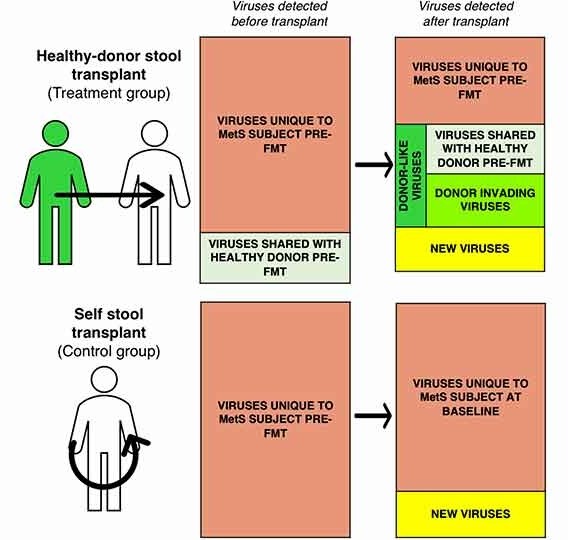Metabolic Syndrome (MetS) is a growing public health concern worldwide. A healthy gut microbiota is associated with a reduction in MetS. Treatment of MetS with fecal microbiota transplantation (FMT) can be effective, however, its success rate is intermediate and difficult to predict.
Because bacteriophages significantly affect the microbiota membership and function, the aim of this pilot study was to explore the dynamics of the gut bacteriophage community after FMT in MetS subjects.
Manrique et al. performed a longitudinal study of stool bacteriophages from healthy donors and MetS subjects before and after FMT treatment. Subjects were assigned to either a control group (self-stool transplant) or a treatment group (healthy-donor-stool transplant). Stool samples were collected over an 18-week period and bacteriophage-like particles were purified and sequenced.

FMT from healthy donors was found to significantly alter the gut bacteriophage community. Subjects with better clinical outcome clustered closer to the heathy donor group, suggesting that throughout the treatment, their bacteriophage community was more similar to healthy donors. Finally, bacteriophage groups that could explain these differences were identified and their prevalence in individuals from a larger cohort of MetS FMT trial was examined.
More about this Clinical Trial.
Targeting Phage Therapy 2023 will highlight the neglected gut bacteriophage community. Secure a place.
Targeting Phage Therapy 2023
6th World Conference
June 1-2, 2023 – Paris, France
